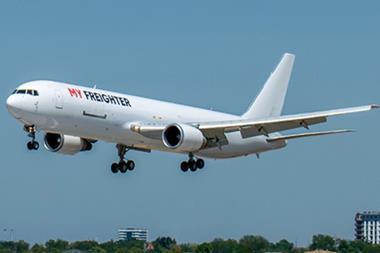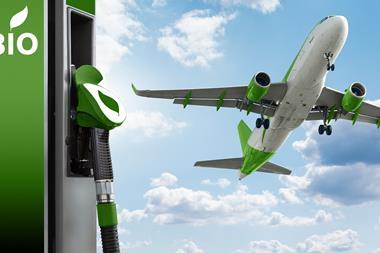IATA has said the UK’s future relationship with Europe must ensure “safe, secure, efficient and sustainable air connectivity” but warned that airfreight volumes will be affected by lower trade.
Following today’s announcement that the UK will invoke its right to leave the European Union, IATA issued a report outlining the effects of the decision and what will happen next.
IATA director general and chief executive Tony Tyler said: “The Brexit vote has triggered much uncertainty—financial and otherwise.
“As leaders in the UK and the EU work to establish a new framework for their relationship, one certainty to guide them is the need and desire of people on both sides of that relationship to travel and trade. Air transport plays a major role in making that possible.
“Air links facilitate business, support jobs and build prosperity. It is critical that whatever form the new UK-EU relationship takes, it must continue to ensure the common interests of safe, secure, efficient and sustainable air connectivity.”
In the short term, the airline association said the vote will affect the relative price of imports and exports into the UK and the impact of this on the country’s airfreight was uncertain.
However, in the longer term, the UK’s exit was likely to have an impact on international trade “and this, in turn, will affect airfreight”, IATA said.
“The Organisation for Economic Co-operation and Development estimates that UK trade volumes could fall by 10%-20% over the long run (to 2030), relative to the baseline,” IATA said
“In part, the international trade impacts will depend upon the nature and timing of trade agreements and relationships negotiated by the UK and this remains highly uncertain at this stage.
“The OECD also notes that regulatory divergence could increase over time, increasing trade costs.”
IATA pointed out that it could take years for the UK to negotiate trade deals with the EU and other countries.
As well as negotiating trade deals, the UK could also have to re-negotiate aviation agreements if the exit also affects the country’s participation in Europe’s single aviation market.
“Membership of the European Common Aviation Area (ECAA) would provide the most straightforward avenue for continued access to the Single Aviation Market, which extends access to the single market to a range of non-EU members.
“However, membership of the ECAA requires acceptance of EU aviation law across all areas, thus severely limiting the UK’s policy freedom.
“Beyond Europe, other air services agreements would need to be negotiated to ensure continued access to markets as important as the US and Canada among others.
“However, ECAA members Norway and Iceland are both parties to the EU-US agreement despite not being in the EU, so this would likely be a scenario that the UK could look to replicate.”
IATA said that bespoke agreements could be negotiated to provide the UK with policy freedom, but would come at the cost of more limited market access.










